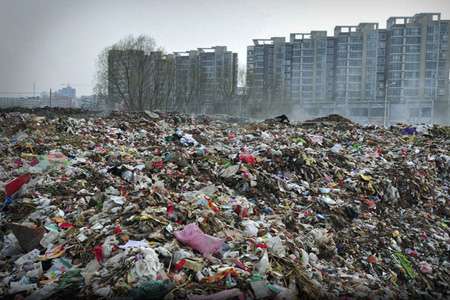Recycling, waster treatment can be 'gold mine'
 0 Comment(s)
0 Comment(s) Print
Print E-mail China.org.cn, October 8, 2013
E-mail China.org.cn, October 8, 2013
Some 3.5 billion people, half the world's population, lack crucial waste management services, significantly harming environment, health and economies, the United Nations reported today, stressing that recycling and proper treatment can be a literal and metaphorical gold mine.
 |
|
Some 3.5 billion people, half the world's population, lack crucial waste management services, significantly harming environment. |
"Open dumping, the most prevalent waste disposal method in many countries, can lead to acute health impacts for those living closest to dumping sites, most often the urban poor," the UN Environment Programme (UNEP) said, calling the statistics "staggering" as it released a new study on the problem that showed that one tonne of recycled electronic waste could yield as much gold as five to 15 tonnes of typical gold ore.
"In addition, poor waste management can lead to significant environmental hazards: leachate from waste can contaminate soil and water, open burning of waste can cause air pollution and a failure to use recycled materials from waste means acceleration in the depletion of ‘raw' materials," it added, seeks to provide strategic guidance to countries where waste management systems are disorganized, haphazard or under-resourced.
The study – Guidelines for National Waste Management Strategies: Moving from Challenges to Opportunities – released in conjunction with the UN Institute for Training and Research (UNITAR).stresses that management is not only a challenge but "a largely untapped opportunity," with treated waste used as a recoverable resource put to profitable use.
Beyond the potential amount of recovered gold from one tonne of electrical and electronic waste (e-waste), it notes that recovered copper, aluminium and rare metals would exceed by many times the levels found in typical ores. Printed circuit boards are "probably the richest ore stream you're ever going to find," it says.
Other benefits include:
Recycling a tonne of aluminium saves 1.3 tonnes of bauxite residues, 15 cubic metres of cooling water, 0.86 cubic metres of process water and nearly 40 barrels of oil, while preventing the emission of two tonnes of carbon dioxide and 11 kilos of sulphur dioxide.






Go to Forum >>0 Comment(s)